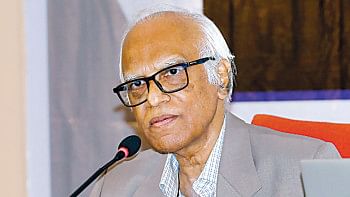What's in a wedding?

Traditionally, the celebration of a union of two lives, weddings can have religious (nikah), social (receptions), and cultural (holud) aspects, at times, with an added financial one (dowry!), depending on the families involved.
I believe, weddings have evolved over time in many ways, however, being showered with love and blessings from near and dear ones remains a big theme of the entire celebration.
Weddings are also a celebration of various stages of human life; a milestone where the freedom of single-life is sacrificed on the altar of promised love and connectedness. They also represent victory of basic human yearning for intimacy over self-centeredness, and proclaim growth and readiness towards more responsibilities in new roles.
This beautiful tradition sets the stage for the new couple to flourish in successful marriage. People gather around in a jovial mood and their best dresses, good food, and lovely decorations, etc. to elevate the mood of the bride and the groom to a happier level.
They become the centre of attraction and everything revolves around them, which is a once in a lifetime experience for most people. This tradition is designed to send good wishes at the outset of a journey as a couple.
The human brain tends to interpret 'high' feelings (adrenaline rush) from internal or external excitements as 'love' and attributes it to the person who they are with at that time. Thus, the gift of joy percolates to the new couple and reinforces the commitment of marriage to stay together through the ups and downs of life.
Some affluent families keep adding events before and after the actual reception/dinner to make the best out of it. Mostly in arranged marriages, or in absence of a history of previous intimacy, highly romanticised follow-up events are 'bashor raat' and honeymoon. This is the climax of suspense with mixed emotions, an epicentre of the whole series of events which is primarily built on the foundation of borrowed love and blessings.
Weddings are also a breeding ground for further matchmakings, offering opportunities for singles to mingle. Younger people romanticise fairytale love, older people reminisce, friends and families come together and celebrate human bonding at multiple levels. The dinner is also a way of gaining social recognition, and it serves as social pressure to stick to the vows and the commitments made, and to fulfil expectations from others as a couple.
Often, long-term married couples become role models and pass on the torch of love and compassion to the next generation, with much wisdom as well.
Some start as strangers and progress through being acquaintances, casual friends to close friends, to confidant-lovers and then to the most mature form of the relationship, as married couples. Wedding is to witness the growth of a bud to its full potential as a flower that makes the garden so beautiful!
Ironically, not all weddings happen for the right reasons, and that is when the purpose of weddings gets defeated. Sometimes the stress of a wedding can outweigh the fun of it. Perfectionism, unrealistic expectations, comparison, financial challenges, communication failures, and emotional baggage from the past, etc. can diminish the pleasure of it.
People with a history of broken relationships, financial constraints, mental health issues, etc. may find it hard to enjoy. Sometimes, social, religious, and political consciousness can hinder someone from seeking social validation through big weddings.
In egalitarian societies, some people try to make a statement by boycotting weddings. Concerns about cultural invasion, hollowness of ceremonies, social impact of raising the standard of wedding parties can also not be overlooked in a highly polarised society of 'have' and 'have nots.'
A section of people who are plagued with the rush from instant gratification are often oblivious of the difference between need and want, and are desperate for thrill and excitement. They can easily go overboard with any celebration and bring negative consequences upon themselves.
Last, but not least, no amount of celebration can guarantee a happy married life. Ultimately, it takes two hearts to be together based on love, trust, and respect to be showered with divine blessings for a successful marriage.
Photo: Prito Reza, Wedding Diary Bangladesh
(www.facebook.com/weddingdiarybd)


 For all latest news, follow The Daily Star's Google News channel.
For all latest news, follow The Daily Star's Google News channel. 



Comments